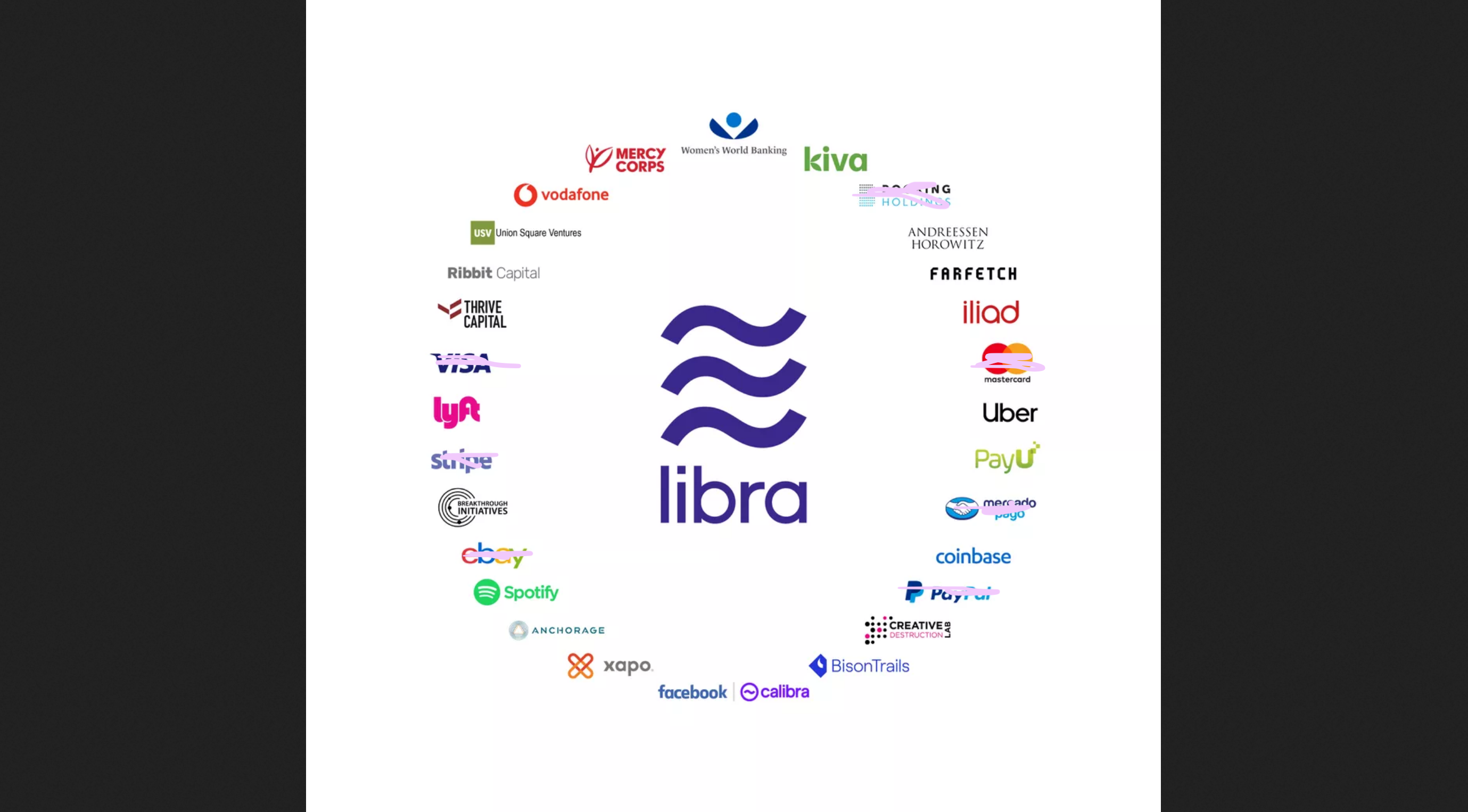eBay, Visa, Mastercard, Paypal, and Stripe just dropped out of the Libra Association
In short, Libra is a cryptocurrency set up by Facebook — but it’s more complicated than that. The first thing to remember about Libra is that it’s a way to have access to money without a bank account — the only thing you need is an internet connection.
If Libra is established, it will also be a way to move money around internationally, without bank charges and slow transfer rates. It will also be stable because it’s backed by a reserve of assets, run by Calibra, which is the independent body set up to handle transfers.
The Libra Association was set up by Facebook as the governing body for Libra. It consists of companies such as Uber and Spotify and also some non-profits. The idea is that each organisation will have equal say in the governance of this new currency.

😬But Libra hasn’t even gotten off the ground yet and people are already losing faith.
Some of the latest players to leave the association were probably useful to have around — their business centers on money transfers (Visa, Mastercard, Paypal, Stripe). So why are they leaving?
⚖️ The privacy concerns are through the roof. Lest we forget that Libra was Facebook’s idea, and so they were instrumental in setting it up. Facebook’s track record is indicative of how seriously they take privacy (not seriously at all), so it’s very possible that financial entities don’t want to associate with that.
Financial data should not, in any way, intermingle with data relating to advertising and social media. One of the issues with Libra is it will convert ‘transactions’ into a different kind of data — it’s already hard to trust Facebook’s management of user data flow as it is, adding finance to those concerns is enough to make us dizzy.
Just a couple of days ago, the association elected its five board members, with Facebook one of them. They will have a major say in how the project is run, and it’s very easy to assume that they will favour decisions which grants them greater access to new kinds of data.
Libra sounds like a bad idea, but many are fighting to keep it together
I’m not talking about the for-profit organisations who want to perpetuate their ideas of consumerism across the globe. It’s important to remember the non-profits that are involved, like Kiva, who are looking to improve on the outdated and unfair financial institutions that we rely on today.
Questioning old institutions for a fairer system is a good idea, and something like Libra could enable that. This may be a case of taking the good with the bad; while it’s hard to know what Facebook’s intentions are (cough more data cough), they are the ones with the power and resources to get a project like this up and running.
But the drop-outs from the association are very telling; less and less people are putting their trust in tech giants like Facebook to run such projects — Libra may die before it’s even fully established.
